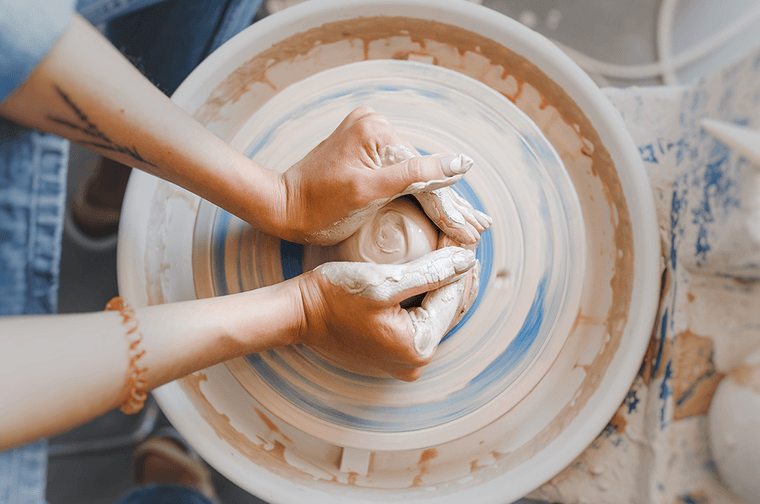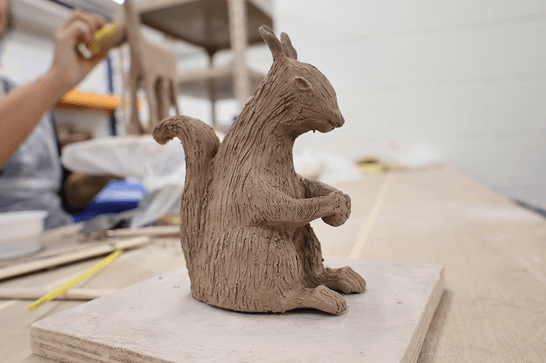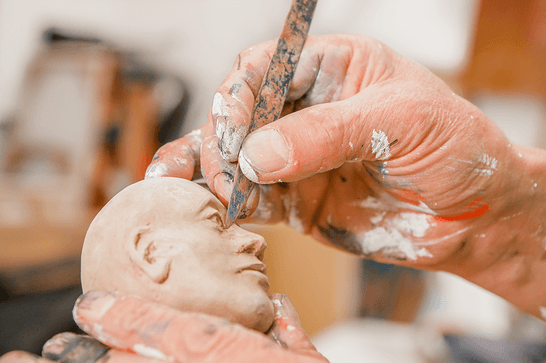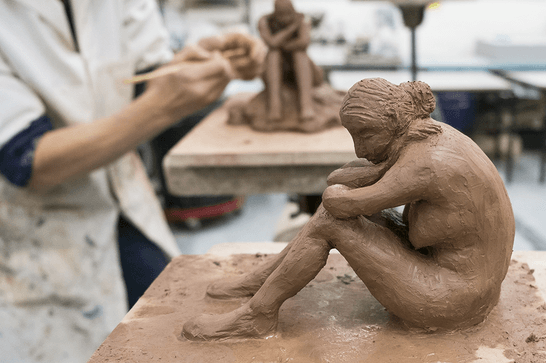
About Wheelwork Asymmetric Forms - 2 day (ASC59)
Learn how to throw clay on this two-day course and experiment with asymmetric forms.
What will you learn on this course?
On this course the tutor will demonstrate the key stages of wheel throwing enabling you to create pieces to great satisfaction. You will learn the art of making non-symmetrical ceramic shapes using a pottery wheel.
You will be taught how to make oblongs, squares and other asymmetrical and sculptural forms and the technique of turning.
The forms can then become bowls including Japanese inspired tea bowls, other kitchen or table ware and decorative items including vases or ceramic sculptures.
The tutor will encourage you to develop your skills and through repetition build your confidence, encouraging you to be selective about work that is retained for firing, so that you deepen your understanding of the art of wheelwork.
Please note that your work will need time to dry out and be fired twice in MAC’s kilns. Your work will be ready for collection up to 4 weeks after the date of your workshop. We will contact you when the work is ready. When you arrive at MAC please ask for an Art Studio Technician or a Duty Manager who will be happy to help you retrieve your piece from our secure pottery cages.
Please note, by the nature of ceramics there is always a risk of technical failure, cracks or explosions for which we cannot be held responsible.
Who is this course for?
The course is aimed at beginners aged 18+ years. You don’t need any previous experience of wheel throwing as full guidance will be given through all the stages.
At the heart of MAC is a focus on accessibility and inclusion. Please contact us to discuss your specific access needs. You do need dexterity in your hands to work with clay. The room is wheelchair accessible and MAC does have accessible potter’s wheels. A personal assistant or companion must book a complimentary ticket if attending to provide support.
Do you need to bring anything?
Short sleeves and old trousers are recommended but clay washes off easily. All materials and equipment are provided.
Are there any additional costs?
The course price includes all materials and firing of your work. Please note that there will be a charge for any oversized work fired.
Who teaches this course?
Serge Sanghera


